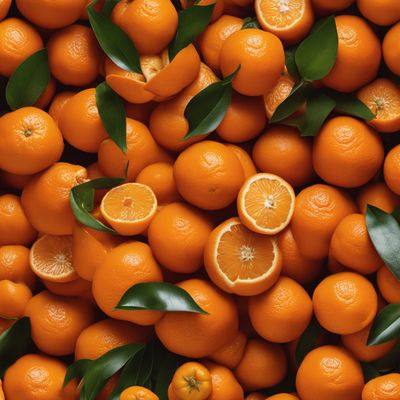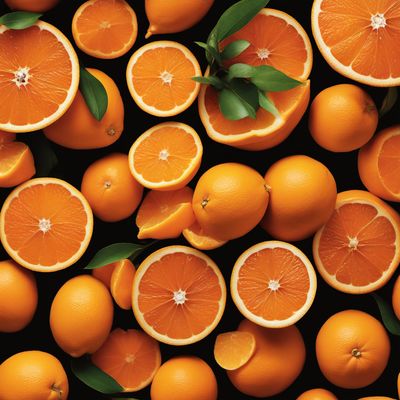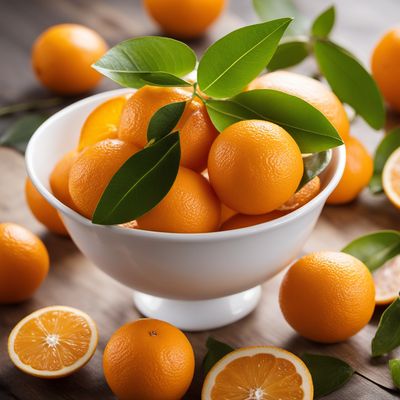
Ingredient
Tankan mandarin
The Citrus Jewel
Tankan mandarins are small, round citrus fruits with a loose, easily peelable skin. They have a vibrant orange color and are segmented, with each segment containing juicy, sweet-tart flesh. The flavor is refreshing and citrusy, with a balance of sweetness and acidity.
Origins and history
Mandarin oranges, including Tankan mandarins, have a long history that can be traced back to ancient China. They were highly valued for their sweet taste and were often given as gifts to emperors and nobility. Over time, mandarins spread to other parts of Asia and eventually reached Europe and the Americas.
Nutritional information
Tankan mandarins are a good source of vitamin C, providing a boost to the immune system. They also contain dietary fiber and antioxidants, which contribute to overall health and well-being. Additionally, mandarins are low in calories and fat, making them a nutritious choice for a guilt-free snack.
Allergens
Some individuals may have allergies or sensitivities to citrus fruits, including Tankan mandarins. It is important to be aware of any potential allergic reactions and avoid consumption if necessary.
How to select
When selecting Tankan mandarins, look for fruits that are firm, heavy for their size, and have a smooth, glossy skin. Avoid mandarins with soft spots, blemishes, or signs of mold. The skin should be vibrant orange and have a fragrant aroma, indicating ripeness.
Storage recommendations
To maintain the freshness of Tankan mandarins, store them at room temperature or in the refrigerator. If storing at room temperature, consume them within a few days to prevent spoilage. If refrigerated, they can last for up to two weeks. Keep them in a ventilated container or perforated bag to prevent excess moisture buildup.
How to produce
Tankan mandarins can be grown in home gardens or purchased from local farmers markets or supermarkets. They thrive in warm climates and require well-drained soil and adequate sunlight. With proper care, amateur gardeners can enjoy a bountiful harvest of these citrus jewels.
Preparation tips
Tankan mandarins can be enjoyed fresh as a snack, added to salads or desserts, or used in both sweet and savory dishes. They can be juiced, zested, or segmented to enhance the flavor of various recipes. The peel can also be used to infuse oils or flavor beverages.
Culinary uses
Tankan mandarins are commonly used in Asian cuisines, particularly in Chinese, Japanese, and Southeast Asian dishes. They are often incorporated into salads, stir-fries, desserts, or used as a garnish for seafood or poultry dishes.
Availability
Tankan mandarins are primarily cultivated in regions with warm climates, including China, Japan, Southeast Asia, and parts of the Mediterranean. They are also grown in California and other citrus-producing regions around the world.
More ingredients from this category

Cleopatra mandarins
The Citrus Jewel: Discover the Allure of Cleopatra Mandarins

Tangerines
The Tangy Delight

Minneolas
The Citrus Gem

Mediterranean mandarins
Sun-Kissed Citrus Delight

Clementines
Sunshine in a Peel: Clementines

Other hybrids of Citrus reticulata, not elsewhere mentioned
Citrus Reticulata Hybrids: Unveiling the Zesty World of Citrus Delights

Satsumas
Sweet and Tangy Citrus Delights

Tangors
The Zesty Hybrid: Unveiling the Tangors' Citrus Symphony

Mandarins
The Citrus Jewel

Calamondins
The Zesty Jewel of Citrus